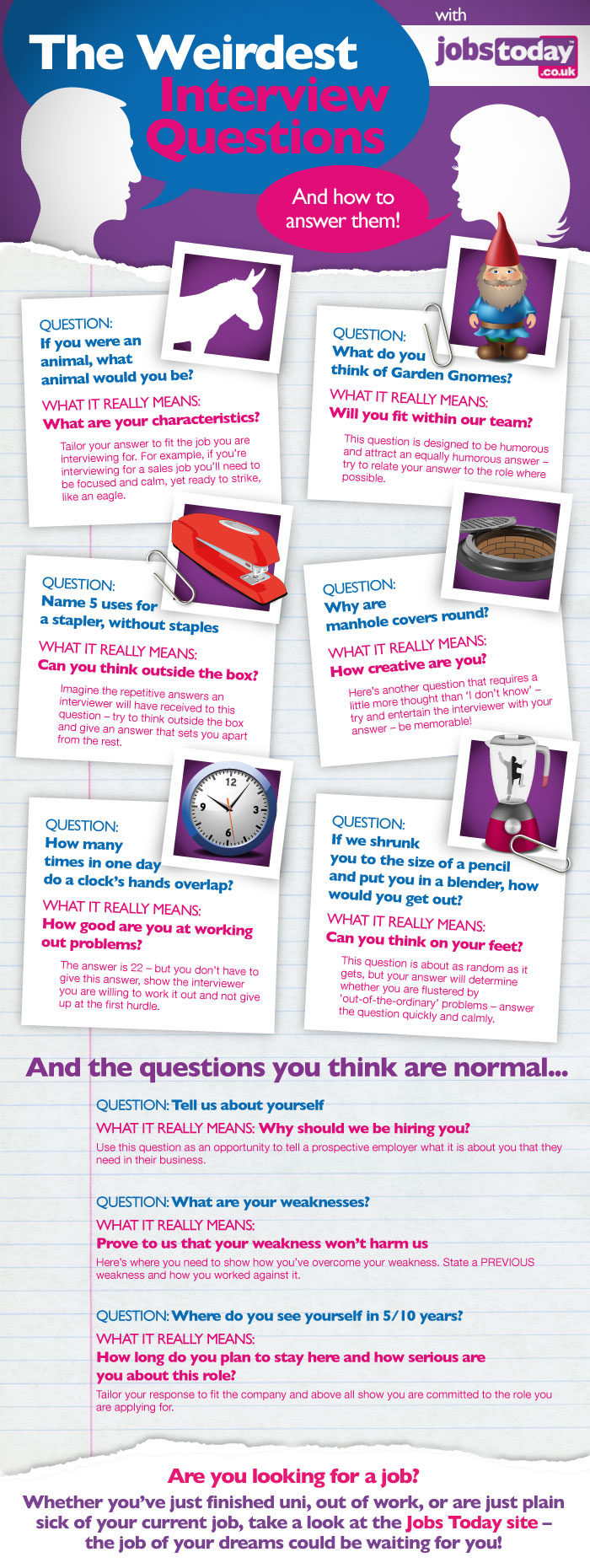 There seems to be a lot of discussion out there right now about “High Maintenance” employees. Depending on what you read, these are either the folks that are destroying companies or the ones that are driving the success at companies.
There seems to be a lot of discussion out there right now about “High Maintenance” employees. Depending on what you read, these are either the folks that are destroying companies or the ones that are driving the success at companies.
Which is it? Is being a high maintenance employee a good thing or a bad thing? Should we hire these types or avoid them like the plague?
In a word…yes. Because, there are different types of high maintenance employees. In her book, “High Maintenance Employees” Katherine Graham Leviss classified two types as:

I propose that there is also a third type of high maintenance employee: 
The High Maintenance High Performers are the highly talented employees who are challenging to manage but produce the biggest results and are worth it. The High Maintenance Low Performers are the employees who spend more time figuring out how to game the system than they do working. They need to be ferreted out of a company because they are dead weight dragging it down. The High Maintenance High Performers But Just Not Worth It employees are really the biggest threat to a company. They are the highly talented employees who produce results, but in the process exhaust everyone and can destroy morale and company culture.
Based on some great books and articles on this subject (see footnotes below for links) and my own experience analyzing employee performance, I’ve put together some of the characteristics of each High Maintenance “type.” As you read through these, do you see yourself or people you manage? (And, if any former bosses of mine happen to be reading this…yes, I know I’m in here too.)
High Maintenance High Performers:
Confrontational and Blunt. They usually get right to the point and are direct about what they want because they KNOW what they want very clearly.
Bored Easily. They master new things quickly and then get bored once they have, and look for new challenges. That is why they frequently are job-hoppers. They simply must feel they are continually learning and moving forward.
Low Bureaucracy Threshold. They do not deal well with bureaucratic obstacles and are not typically diplomatic in dealing with it. They usually ignore corporate hierarchy and do not have an innate respect for authority. They respect accomplishments – not titles.
Demanding. These are talented, high performing individuals who know their worth. They are demanding of themselves and have very high standards. They push limits and boundaries to see what’s possible. This also means that they demand the same from those around them. They have high expectations and do not “suffer fools gladly.”
 Independence. They want clear, direct communication of what is expected of them and then the latitude to get it done their own way. They want freedom and control over their work. And, to that end, they question EVERYTHING. It’s not meant to be disrespectful. It’s because this is how they learn and because they need to know the “why” of something in order to evaluate what they are being asked to do.
Independence. They want clear, direct communication of what is expected of them and then the latitude to get it done their own way. They want freedom and control over their work. And, to that end, they question EVERYTHING. It’s not meant to be disrespectful. It’s because this is how they learn and because they need to know the “why” of something in order to evaluate what they are being asked to do.
Emotional. It could be something big or something seemingly insignificant, but if they feel it is important they will get involved and give it their all. A favorite phrase is, “It’s the principle of the matter.” They fight for what they believe in.
What I Do Matters. These high performers need to feel that their work makes a difference in the success of the company. They are usually very entrepreneurial and see their work as running their own company within a company.
Recognition. They have a very strong ego drive and need continual recognition for their accomplishments. They must feel they are appreciated for their expertise and what they bring to the company. They want to be asked their opinion about things and be “in-the-know” when it comes to company politics or inside information. I’ve always said, praise high maintenance high performers and they’ll kill for you.
Quick Decisions. They are very decisive, trust their gut, make decisions quickly and expect others to do the same. They get frustrated when dealing with people who want to analyze and think through all the possible outcomes first.
High Maintenance Low Performers:
Blame Game. Nothing is ever their fault. They are unable or unwilling to see their part in any situation where they have made a mistake. The closest they might come is to admitting they made a mistake but then follow it up by saying they only made it because of someone else.
H.R. Groupies. Because they are chronic low performers, they are constantly in H.R. complaining about something in order to cover their butt and deflect attention away from the real issue; which is of course, their sub-par performance. Many times they take advantage of well-intended H.R. managers because they are so adept at playing the martyr.
Everything Is “Unfair”. They are always complaining to their manager about some perceived slight they feel they have received. It seems that someone is always getting more of something than they are and they believe if only they had a level playing field they could be a top performer. They make it their business to know everyone else’s business and they are obsessed with knowing just what everyone else is doing and getting.
 Bad Money Management. Because they are overly concerned with what others have, they frequently are materialistic and live beyond their means. This creates more stress as they find themselves increasingly in debt with no way out. Often they look to their company to bail them out.
Bad Money Management. Because they are overly concerned with what others have, they frequently are materialistic and live beyond their means. This creates more stress as they find themselves increasingly in debt with no way out. Often they look to their company to bail them out.
Always An Excuse. No matter what the situation, these people are masters at having a well thought out and prepared excuse for their lack of performance. It might be something in their personal life or something work related, but you can be sure it will be creative.
 The Lifetime Movie Effect. Something is always going wrong. One day it’s a flat tire, the next day maybe it’s spouse/girlfriend/boyfriend trouble, or kid problems, or someone is sick/dying/in a car accident, you get the idea. No one can be this unlucky. Usually they are just more weapons in their arsenal to make you either feel sorry for them, not put them on probation/fire them, or buy themselves some more time.
The Lifetime Movie Effect. Something is always going wrong. One day it’s a flat tire, the next day maybe it’s spouse/girlfriend/boyfriend trouble, or kid problems, or someone is sick/dying/in a car accident, you get the idea. No one can be this unlucky. Usually they are just more weapons in their arsenal to make you either feel sorry for them, not put them on probation/fire them, or buy themselves some more time.
Nothing Is Ever Enough. You can give them everything they have asked for and yet it is like filling up a sink with no drain plug. No matter how much you give, it will never be enough and they will continue to under-perform and sap your strength. Why? Because they just don’t have the talent to do the job, or they are just too lazy to do it.
High Maintenance High Performers But Just Not Worth It:
ASAP Syndrome. Everything is urgent. Everything is needed As Soon As Possible. They constantly expect everyone to drop what they are doing to help them with even the smallest of details. Big things, small things, it doesn’t matter everything is a crisis and top priority.
More Drama Than A Soap Opera. This is one of the most insidious problems with these types of high maintenance employees. They create drama by intentionally stirring the pot. They gossip, they divide and conquer, they look for ways to increase their stature at the expense of others (usually their boss). They manage to get people all whipped up and upset over things they ordinarily wouldn’t have given a second thought to…It’s like the little devil sitting on your shoulder whispering in your ear.
Reply To All Disease. They are constantly emailing EVERYONE about EVERYTHING. They feel the need to involve everyone in what they are working on, usually in an attempt to point out, “See how great I am, look at all the things I’m doing.”
“You Do Know Who I Am Right?” The ego drive has really warped into something sinister; a sense of entitlement that is way out of proportion to who they are. Yes, you may be a top performer, but you’re not curing cancer. They feel the rules, guidelines, procedures, etc. just don’t apply to them and it creates resentment and chaos with the mere mortals who work with them.
More Of A Hog Than Boss Hogg. Not so much a money hog (although they can be) as a credit hog. They are constantly hogging all the glory for any accomplishment and fail to credit those that helped them achieve it. Rarely is an accomplishment in a company the sole work of one person. Yet these types of employees would have you believe that without them nothing would ever be achieved. It infuriates co-workers and destroys any team building and teamwork culture a company has tried to build.
The Grudge Master. They can remember every slight (perceived or real, large or small) that has been done to them. They just can’t get past it and take everything personally. They use these as justifications for their own poor behavior or choices.
“That’s Not My Job.” Not only are they not team players but if you ask them to pitch in and help out with something they deem beneath them, they will be insulted and pout. If they feel certain tasks or jobs are beneath them, what message does that send to the person who normally does those things?
Obviously, High Maintenance Low Performers need to be terminated or helped to “de-recruit” themselves as I like to say. But what about the High Maintenance High Performers But Just Not Worth It employees? Can they be reformed and join the High Maintenance High Performers group? And what are the most effective ways to manage High Maintenance High Performers? I’ll leave those questions for Part 2!
Resources:
“Confessions Of A High Maintenance CEO”, David K. Williams, Forbes,
“The (Unlucky) 13 Traits of High Maintenance People”, Cheryl Conner, Forbes
The 3 Types Of High Maintenance Employees Infographic:
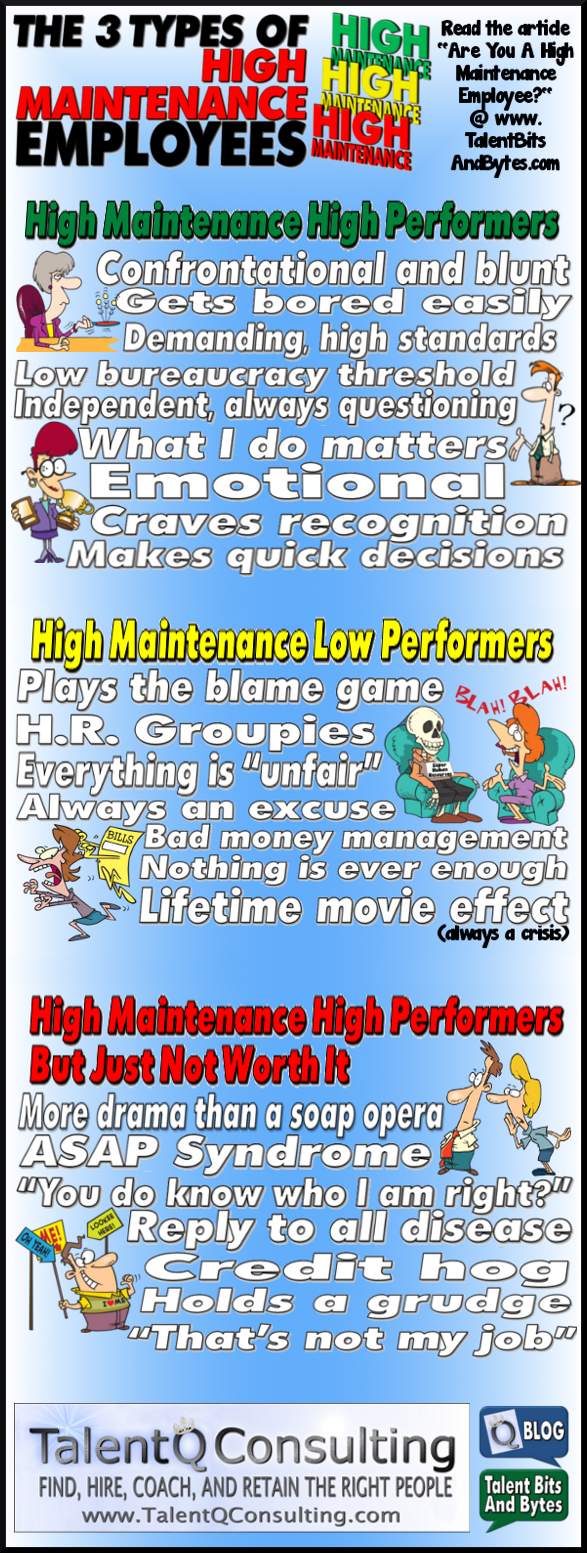
 While sales success is in many ways an individual pursuit, a salesperson is usually a part of a sales team as well. Even though there might be healthy competition between members of a sales team, many of the same team dynamics that apply to other departments, apply for the sales department as well. Interesting research has been done on what factors go into separating top performing teams from bottom performing teams.
While sales success is in many ways an individual pursuit, a salesperson is usually a part of a sales team as well. Even though there might be healthy competition between members of a sales team, many of the same team dynamics that apply to other departments, apply for the sales department as well. Interesting research has been done on what factors go into separating top performing teams from bottom performing teams.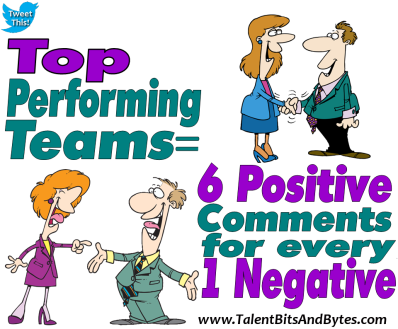
 Obviously, this is a huge difference. It’s not hard to imagine the difference in environments and how this would play out in an office. Don’t you think you would sell more in a supportive environment where you feel like your co-workers are pulling for you and noticing great work?
Obviously, this is a huge difference. It’s not hard to imagine the difference in environments and how this would play out in an office. Don’t you think you would sell more in a supportive environment where you feel like your co-workers are pulling for you and noticing great work?
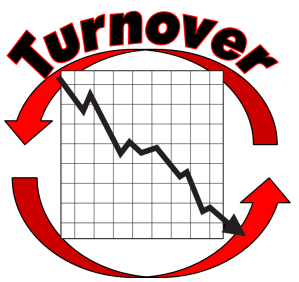

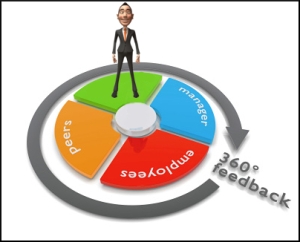



































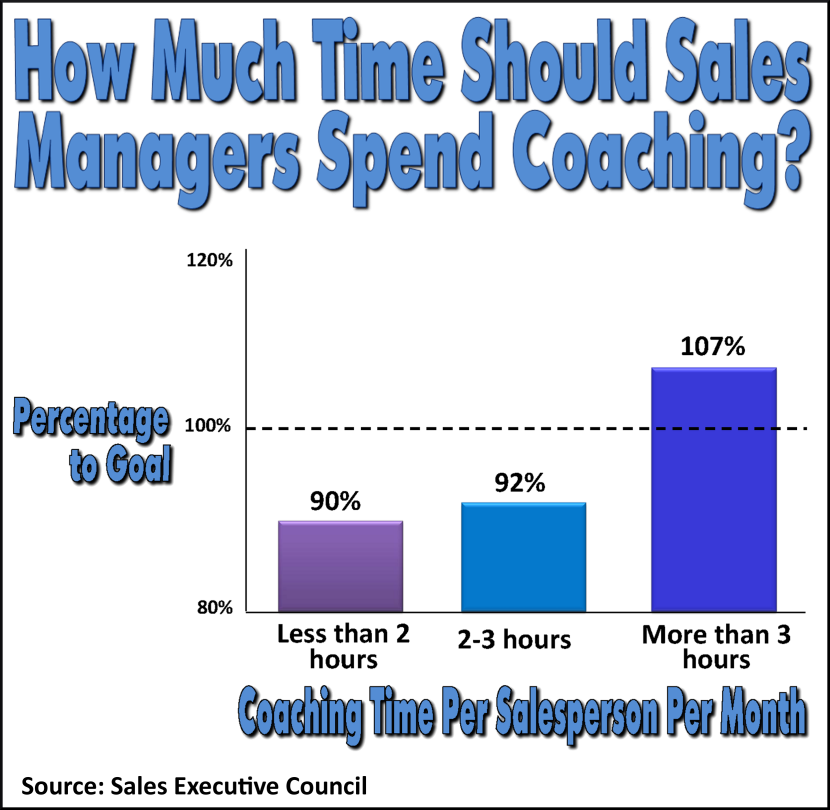




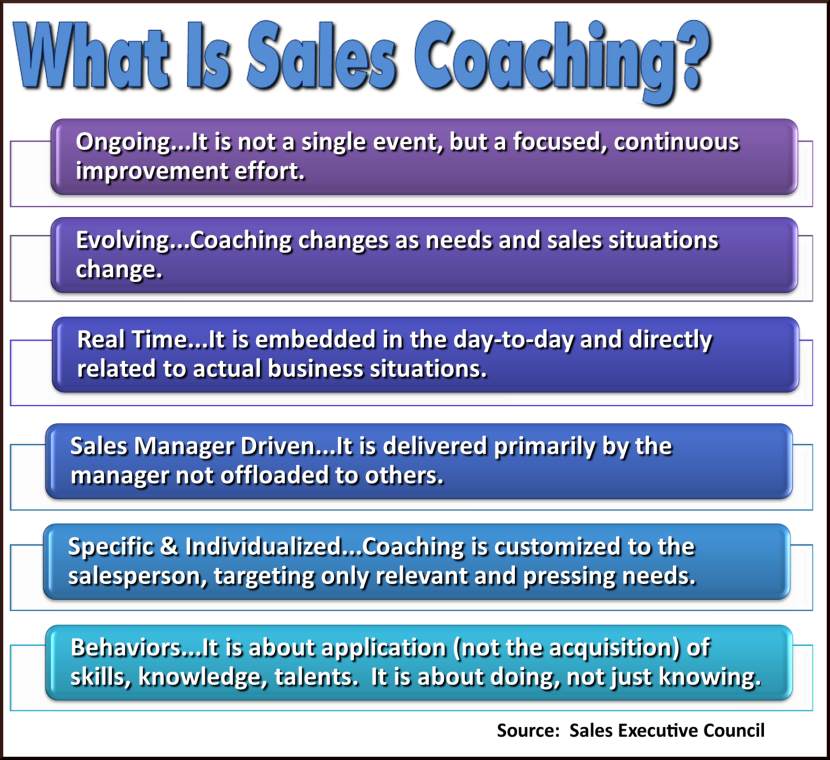


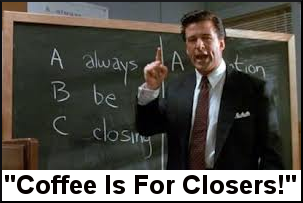



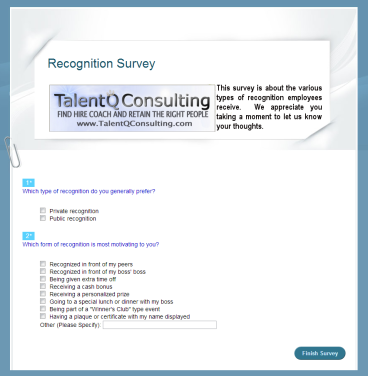
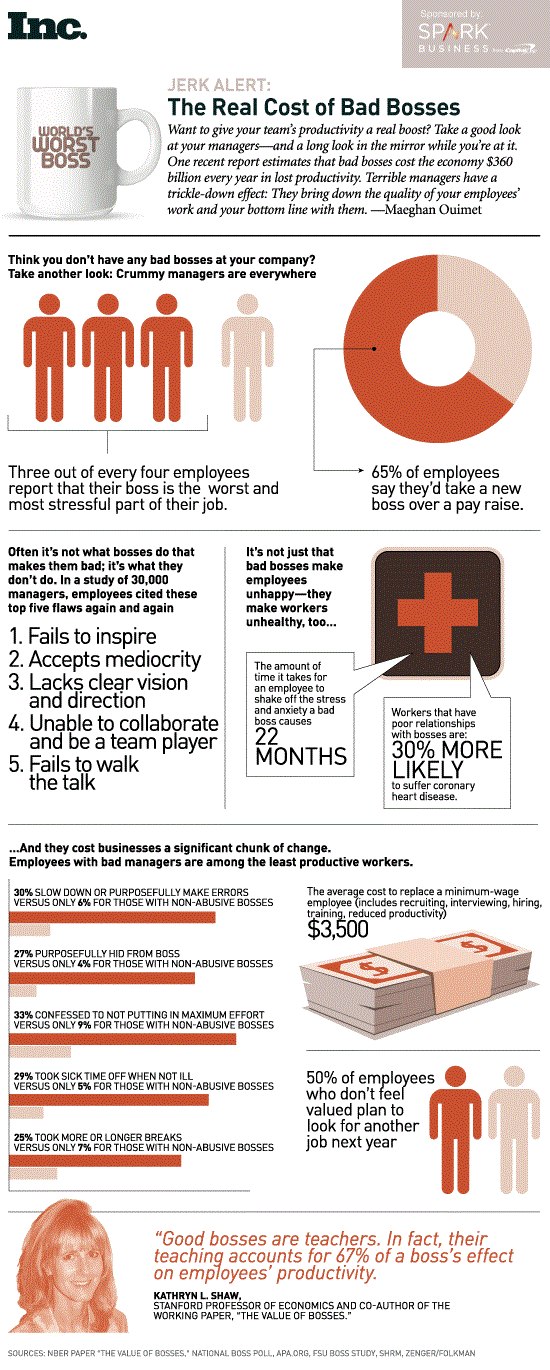
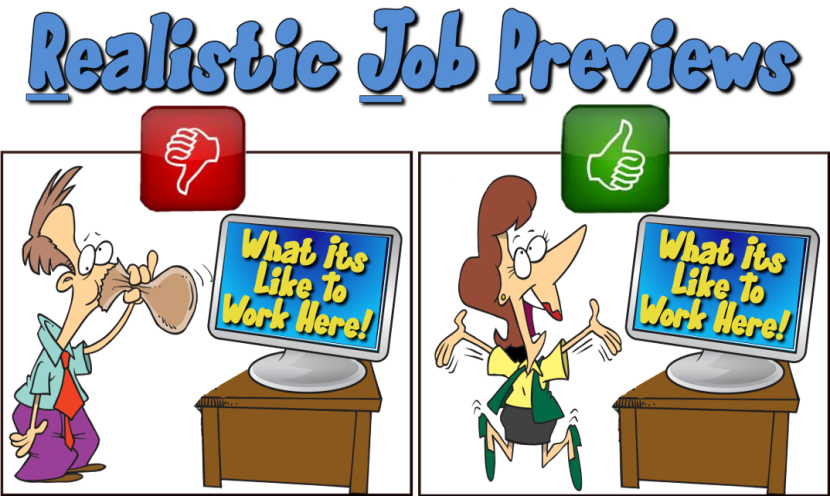








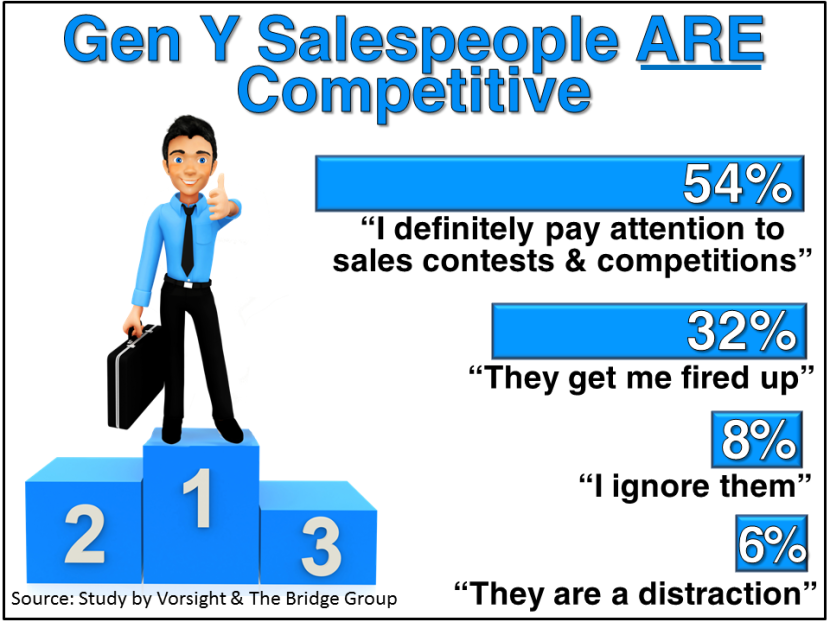
















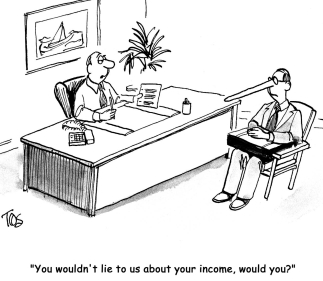



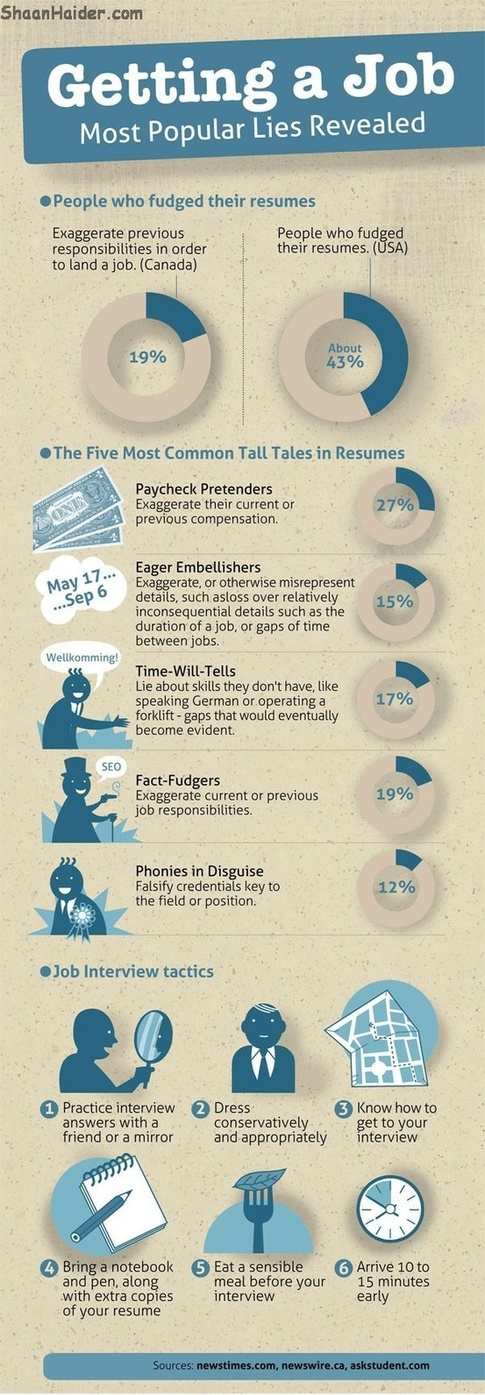

 Ok, granted we are building sales teams not atom bombs. But think about what he says as it applies to a sales team. If he’s right that the difference between the best and average is about 30%, what could your sales team accomplish if it was 30% better?
Ok, granted we are building sales teams not atom bombs. But think about what he says as it applies to a sales team. If he’s right that the difference between the best and average is about 30%, what could your sales team accomplish if it was 30% better? By keeping those C-players you are also impacting your A-players. Not only do they typically not want to be surrounded by those of lesser talent, they also find it de-motivating. It’s like a pro tennis player playing a match against a junior. Not only isn’t it fun, it can degrade your skills because people tend to “play down” to the level they are playing against. A-players are motivated by other A-players and push themselves because they want to stay in the top group and be respected by those top people.
By keeping those C-players you are also impacting your A-players. Not only do they typically not want to be surrounded by those of lesser talent, they also find it de-motivating. It’s like a pro tennis player playing a match against a junior. Not only isn’t it fun, it can degrade your skills because people tend to “play down” to the level they are playing against. A-players are motivated by other A-players and push themselves because they want to stay in the top group and be respected by those top people.
 2. What do you think? By saying this, you are telling the salesperson that you value her opinion and want input. You are opening the door to a collaborative relationship. Asking for other’s opinions show you respect their knowledge and expertise. It doesn’t mean you have to agree with everything suggested, but it tells you where the salesperson’s head is at on a particular issue and will help you incorporate that into your decisions. Once you know what the salesperson is thinking you can steer the conversation with phrase #3…
2. What do you think? By saying this, you are telling the salesperson that you value her opinion and want input. You are opening the door to a collaborative relationship. Asking for other’s opinions show you respect their knowledge and expertise. It doesn’t mean you have to agree with everything suggested, but it tells you where the salesperson’s head is at on a particular issue and will help you incorporate that into your decisions. Once you know what the salesperson is thinking you can steer the conversation with phrase #3… 4. How can I help? So many times salespeople feel that they are fighting an uphill battle within their own companies. Battling with paperwork, bureaucracy, and other departments often makes it seem that they are at cross purposes with some of their co-workers. And that’s just inside the company. Now add on all the obstacles they have to overcome with clients. Salespeople need to feel like their sales manager will move walls for them and do whatever she can to help make that sale happen. Just simply saying, “How can I help you” is powerful. You are telling the salesperson you understand the situation and validating the frustration many salespeople feel.
4. How can I help? So many times salespeople feel that they are fighting an uphill battle within their own companies. Battling with paperwork, bureaucracy, and other departments often makes it seem that they are at cross purposes with some of their co-workers. And that’s just inside the company. Now add on all the obstacles they have to overcome with clients. Salespeople need to feel like their sales manager will move walls for them and do whatever she can to help make that sale happen. Just simply saying, “How can I help you” is powerful. You are telling the salesperson you understand the situation and validating the frustration many salespeople feel. 7. I don’t know. These are hard words for most managers to say. It seems so counter-intuitive to say, “I don’t know” and think that a salesperson will respect us MORE for saying it. But it’s true. It’s ok not to have all the answers. In fact, some of the best, most creative solutions come from not knowing an answer and seeking out information. A close relative to this phrase is “Let me think about that.” Salespeople are persuasive and usually want an answer or decision from you immediately. And certainly there are many times when a quick decision is warranted. But don’t fall into the trap of thinking that everything has to be decided this minute. Sometimes, a little reflection or time to seek out additional information is what elevates someone to being a leader and not only a manager.
7. I don’t know. These are hard words for most managers to say. It seems so counter-intuitive to say, “I don’t know” and think that a salesperson will respect us MORE for saying it. But it’s true. It’s ok not to have all the answers. In fact, some of the best, most creative solutions come from not knowing an answer and seeking out information. A close relative to this phrase is “Let me think about that.” Salespeople are persuasive and usually want an answer or decision from you immediately. And certainly there are many times when a quick decision is warranted. But don’t fall into the trap of thinking that everything has to be decided this minute. Sometimes, a little reflection or time to seek out additional information is what elevates someone to being a leader and not only a manager. 9. Let me play Devil’s Advocate for a moment. This is a terrific way to give feedback to a salesperson when you want to show her another way something might be handled. It allows you to demonstrate the flaws in a plan, but in a de-personalized way. Rather than telling the salesperson, “I think you should do xyz,” you are simply pointing out what “others” might object to or say.
9. Let me play Devil’s Advocate for a moment. This is a terrific way to give feedback to a salesperson when you want to show her another way something might be handled. It allows you to demonstrate the flaws in a plan, but in a de-personalized way. Rather than telling the salesperson, “I think you should do xyz,” you are simply pointing out what “others” might object to or say. 10. Thank you. Yes, it’s simple. So easy, right? Maybe. But probably the most common complaint I’ve heard from salespeople over the years is a variation on, “My sales manager didn’t appreciate me.” Saying “thank you” is recognition of the work a salesperson is doing. It shows the salesperson you are engaged, you noticed, and you appreciate it.
10. Thank you. Yes, it’s simple. So easy, right? Maybe. But probably the most common complaint I’ve heard from salespeople over the years is a variation on, “My sales manager didn’t appreciate me.” Saying “thank you” is recognition of the work a salesperson is doing. It shows the salesperson you are engaged, you noticed, and you appreciate it.
 enjoying their job. While the survey was not done only with salespeople, I have to think, given the social nature of most salespeople, that this would be a key factor among them as well. Additionally the study found that only 55% thought money was the most important thing. (Ok, that percentage might not be as high among salespeople!) I think this survey’s findings* on the importance of having a connection with your co-workers, further underscores the need for every newly hired salesperson to have a sales “buddy” or what I like to call a “Sales Pal.”
enjoying their job. While the survey was not done only with salespeople, I have to think, given the social nature of most salespeople, that this would be a key factor among them as well. Additionally the study found that only 55% thought money was the most important thing. (Ok, that percentage might not be as high among salespeople!) I think this survey’s findings* on the importance of having a connection with your co-workers, further underscores the need for every newly hired salesperson to have a sales “buddy” or what I like to call a “Sales Pal.” Need more convincing? 87% of the top 100 training programs used a mentoring/buddy system as part of their onboarding for new hires.**
Need more convincing? 87% of the top 100 training programs used a mentoring/buddy system as part of their onboarding for new hires.**  A Sales Pal is someone who takes on the role of a “player/coach” with your new hire. The Sales Pal is there as a resource and peer adviser. A Sales Pal should be a superior performer (not necessarily someone who has been there the longest) and have good interpersonal skills and a desire to coach and help others.
A Sales Pal is someone who takes on the role of a “player/coach” with your new hire. The Sales Pal is there as a resource and peer adviser. A Sales Pal should be a superior performer (not necessarily someone who has been there the longest) and have good interpersonal skills and a desire to coach and help others. The Sales Pal should be someone that the new hire can easily relate to and can trust completely. One of the purposes of this role is to create an informal environment in which the employee can ask and receive information about the ins and outs of how things work in your department and in your company. These may be questions that the new hire would be hesitant to ask you, because you are the boss. Besides, what if it’s a question about how to best handle you?!
The Sales Pal should be someone that the new hire can easily relate to and can trust completely. One of the purposes of this role is to create an informal environment in which the employee can ask and receive information about the ins and outs of how things work in your department and in your company. These may be questions that the new hire would be hesitant to ask you, because you are the boss. Besides, what if it’s a question about how to best handle you?! Provide the Sales Pal with any tools that might be needed to be effective. Go over with the Sales Pal what your expectations are for how this person will help the new hire and how you envision the person maximizing the relationship. Give pointers on coaching and effective communication skills. You should monitor how things are going periodically. Check in with both the new hire and the Sales Pal to get input from each on the process. If it is not working, or not a good fit, consider a change to someone different. You can always position it as you want to expose the new hire to different types of successful sellers.
Provide the Sales Pal with any tools that might be needed to be effective. Go over with the Sales Pal what your expectations are for how this person will help the new hire and how you envision the person maximizing the relationship. Give pointers on coaching and effective communication skills. You should monitor how things are going periodically. Check in with both the new hire and the Sales Pal to get input from each on the process. If it is not working, or not a good fit, consider a change to someone different. You can always position it as you want to expose the new hire to different types of successful sellers.

 My Manager Was A Control Freak – One of the top reasons salespeople are drawn to sales in the first place is the opportunity to work independently and feel they have control over their business. They are entrepreneurial and look at sales as running their own small business operation. If they feel their manager is watching every move they make, it feels insulting and implies you don’t trust them. Holding people accountable? Absolutely. But that does not mean micro-managing. Micro-management just does not work with top performing salespeople.
My Manager Was A Control Freak – One of the top reasons salespeople are drawn to sales in the first place is the opportunity to work independently and feel they have control over their business. They are entrepreneurial and look at sales as running their own small business operation. If they feel their manager is watching every move they make, it feels insulting and implies you don’t trust them. Holding people accountable? Absolutely. But that does not mean micro-managing. Micro-management just does not work with top performing salespeople.
 My Manager Didn’t Appreciate Me – Sound egotistical? Maybe, but a strong ego drive is crucial to successful selling so why are so many sales managers surprised that their salespeople need ego stroking? Recognition and praise are critical components to managing people successfully but I think this is particularly important with salespeople who deal with far more rejection than successes. They need to know their manager understands what they face each day, and appreciates it. Sure praising a great sale is good – but that is expected. Praise and recognition for other aspects of the job like creating a great presentation, helping the client achieve an objective, developing strong client relationships, even getting paperwork in on time – now that, a salesperson will remember. Keeping a salesperson engaged and motivated is paramount and is a direct indicator of how long that person will be with you, and more important – how effective!
My Manager Didn’t Appreciate Me – Sound egotistical? Maybe, but a strong ego drive is crucial to successful selling so why are so many sales managers surprised that their salespeople need ego stroking? Recognition and praise are critical components to managing people successfully but I think this is particularly important with salespeople who deal with far more rejection than successes. They need to know their manager understands what they face each day, and appreciates it. Sure praising a great sale is good – but that is expected. Praise and recognition for other aspects of the job like creating a great presentation, helping the client achieve an objective, developing strong client relationships, even getting paperwork in on time – now that, a salesperson will remember. Keeping a salesperson engaged and motivated is paramount and is a direct indicator of how long that person will be with you, and more important – how effective!  My Manager Played Favorites – Sure this might sound a little like “teacher’s pet” finger pointing, but perception is reality. Salespeople do tend to be hyper-alert to whether or not they are on a level playing field with their fellow sellers. I think this is because salespeople are usually quite competitive by nature. And, wouldn’t you be frustrated if you thought the person(s) you are competing against had an unfair advantage over you?
My Manager Played Favorites – Sure this might sound a little like “teacher’s pet” finger pointing, but perception is reality. Salespeople do tend to be hyper-alert to whether or not they are on a level playing field with their fellow sellers. I think this is because salespeople are usually quite competitive by nature. And, wouldn’t you be frustrated if you thought the person(s) you are competing against had an unfair advantage over you? manager who is a “credit hog” and takes the credit for a salesperson’s success; the egotistical sales manager who is all about being “the boss” – you know the type, they refer to the sales team as “MY sales team”; and the sales manager who positions everything to upper management in a way that makes him or her look like the hero. When coaching new sales managers I tell them if you shine the spotlight on yourself you’ll soon be playing to an empty house, shine the spotlight on the achievements of your salespeople and they will make you a star.
manager who is a “credit hog” and takes the credit for a salesperson’s success; the egotistical sales manager who is all about being “the boss” – you know the type, they refer to the sales team as “MY sales team”; and the sales manager who positions everything to upper management in a way that makes him or her look like the hero. When coaching new sales managers I tell them if you shine the spotlight on yourself you’ll soon be playing to an empty house, shine the spotlight on the achievements of your salespeople and they will make you a star. My Manager Was A Liar – This one is simple to avoid. Don’t make promises unless you are 100% sure you can keep them. And if you make a promise, back it up 100%. Salespeople are expert at nailing people down and getting an answer. It’s called closing! As a sales manager, you are spinning a lot of plates and it is easy to give a quick “yes” to get something resolved quickly. But that can come back to haunt you and cause problems later if you can’t deliver. It’s better to say, “I’m not sure” and set a time to revisit the issue than to be seen by your salespeople as someone who doesn’t live up to his commitments.
My Manager Was A Liar – This one is simple to avoid. Don’t make promises unless you are 100% sure you can keep them. And if you make a promise, back it up 100%. Salespeople are expert at nailing people down and getting an answer. It’s called closing! As a sales manager, you are spinning a lot of plates and it is easy to give a quick “yes” to get something resolved quickly. But that can come back to haunt you and cause problems later if you can’t deliver. It’s better to say, “I’m not sure” and set a time to revisit the issue than to be seen by your salespeople as someone who doesn’t live up to his commitments. Compensation – When a salesperson leaves because of money (although numerous research studies have shown that this is RARELY the top reason a salesperson quits) it is usually because he or she feels they are being stifled or “capped” on their income potential. Most salespeople are motivated by the concept of “the harder I work, the more I sell, the more money I make.” If that is taken away (whether it is perception or in reality) it can severely de-motivate the salesperson.
Compensation – When a salesperson leaves because of money (although numerous research studies have shown that this is RARELY the top reason a salesperson quits) it is usually because he or she feels they are being stifled or “capped” on their income potential. Most salespeople are motivated by the concept of “the harder I work, the more I sell, the more money I make.” If that is taken away (whether it is perception or in reality) it can severely de-motivate the salesperson. they are working with sub-par sellers. Quite simply, talented people want to work with talented people. If a salesperson feels that they are surrounded by other salespeople who are not as motivated to achieve, the salesperson starts to wonder, “Why am I here?” Top salespeople are energized by other successful salespeople because they like to measure their success against what their co-workers have achieved. It doesn’t feel like a win if you are Michael Jordan and you slam dunk on a high school kid.
they are working with sub-par sellers. Quite simply, talented people want to work with talented people. If a salesperson feels that they are surrounded by other salespeople who are not as motivated to achieve, the salesperson starts to wonder, “Why am I here?” Top salespeople are energized by other successful salespeople because they like to measure their success against what their co-workers have achieved. It doesn’t feel like a win if you are Michael Jordan and you slam dunk on a high school kid. Lack of Tools, Training, or Leadership – It is important to salespeople that they work in a culture where they feel the company is investing in them. This means having the tools and support they need to be effective salespeople. And, that includes having an
Lack of Tools, Training, or Leadership – It is important to salespeople that they work in a culture where they feel the company is investing in them. This means having the tools and support they need to be effective salespeople. And, that includes having an 





 Make sure you have sent out an email to all employees ahead of time announcing the hiring with information about the salesperson, so that employees can extend a warm welcome. Include the new hire’s email address (with his or her permission) and ask employees to reach out before he or she starts with a welcome email note.
Make sure you have sent out an email to all employees ahead of time announcing the hiring with information about the salesperson, so that employees can extend a warm welcome. Include the new hire’s email address (with his or her permission) and ask employees to reach out before he or she starts with a welcome email note.


















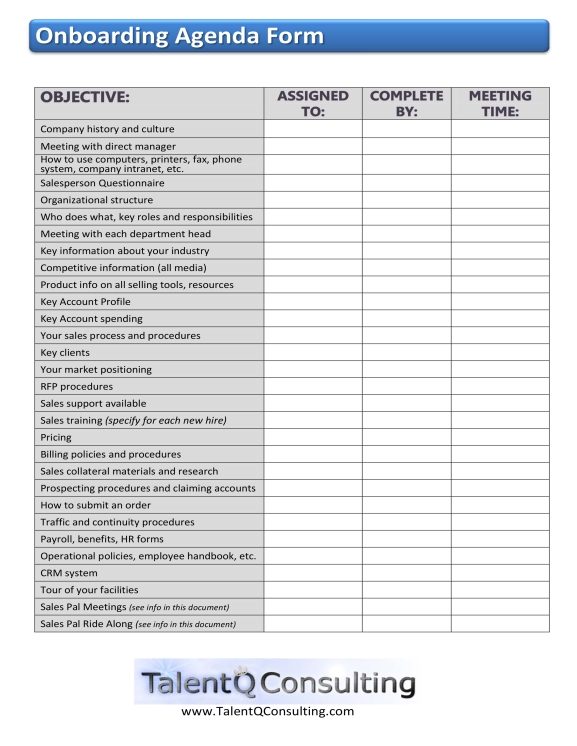
 One of the main reasons employees either leave or are a success in an organization is a direct result of their relationship with their manager. “In the end, turnover is mostly a manager issue,” Gallup wrote in its survey findings.
One of the main reasons employees either leave or are a success in an organization is a direct result of their relationship with their manager. “In the end, turnover is mostly a manager issue,” Gallup wrote in its survey findings.







